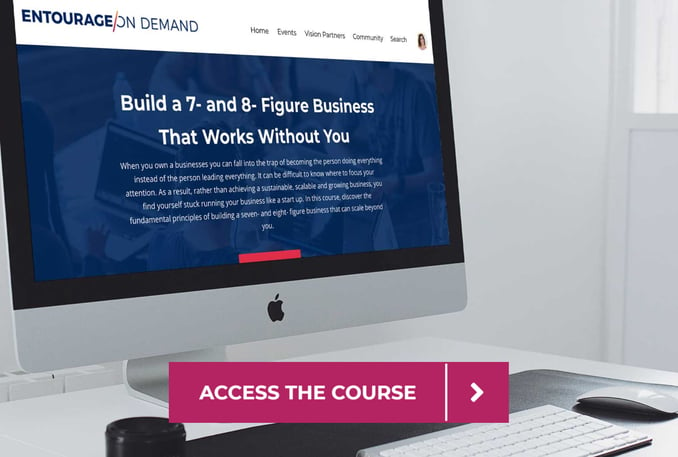How Do You Value A Business For Sale?

There can be many reasons to sell your business. Whether it's to help fund your retirement, give you the space to focus on other priorities, or change businesses altogether, you need to know how much your business is worth to ensure that you get the money you deserve for the years of hard work you've put into growing your business.
How do you value a business? A lot goes into valuing a small business for sale. What assets does the business own? What is the cash flow like? What are those intangible aspects of your business which make it worth a whole lot more?
Read on, and we will help guide you in discovering how much your small business could be worth.
General tips for valuing a small business for sale
Get your affairs in order
If you arrive at a meeting to discuss selling your business, and you don't have all your information ready to go, this can reflect poorly upon you and your business. You may put potential buyers off buying your business.
Things you will need to bring with you when discussing the sale:
- Financial statements for the last 5 years - cash flow statements, annual turnover, and profit and loss statements
- Details of physical assets - office buildings you own, equipment, or stock
- Any other assets - intellectual property, lists of clients, or things like social media influence
Some legal information you will need to bring:
- Lease documentation - leases on all properties and the rent paid
- Insurance documentation - showing all policies and how much you pay for them and how much they are worth
- Registrations - any documents showing the business name registration and the ABN, any permits required to run the business and how long they have left before renewal, all permits and licenses you need, and anything else which shows compliance in the field you operate in
Bring in details about staff and supplier information:
- Employee details - how many staff, job roles, wages, and potentially job performance reports
- Supplier details - list of suppliers, agreed on prices, and any notes on reliability and staff at certain suppliers.
- Customer details - database list, details on your sales cycles, as well as things such as any ongoing customer discounts
And bring some details about your business:
- Business plan - overall vision, mission and values of the business, upcoming growth plans as well as any strategic plans in your sub-departments
- Business profile - a history of the business, opening hours, location details, and how long have you been in business
- Documentation - work procedure documents, and any incident reports or staff reports
- Market report - competitor reports, or your marketing campaign reports.
Get professional advice
We highly recommend getting professional advice when selling your business. Start by talking to your accountant or bookkeeper. They can help with your documentation, but they also likely know someone who can help value your business for sale.
An independent third party helping you out can also remove bias and sentimentality when valuing your business, as well as give an honest opinion and price point.
What are the different evaluation methods for selling a small business?
How much is your business worth? What is its value? How do you determine this? Deciding the value of your business is complicated and can be done in many different ways. Do you value your business based purely on physical assets? How about the real estate the business owns, such as outlets or warehouses in California? Or is it valued based on how much an owner gets back on their investment? Let's look a bit closer?
Asset valuation
This is arguably the easiest way to value a business. You add up the value of any assets the business owns, and take away any liabilities.
If your business owns a million dollars of machinery and equipment, and has $200,000 in outstanding invoices, then the value of the business stands at $800,000.
How do you value a business's assets?
The common way to value a business asset is to deduct the accumulated depreciation from the original purchase price.
An asset begins to depreciate as soon as it 'leaves the lot' as they say. Let’s say you bought a truck for your business, and it cost you $40,000 new off the lot 3 years ago. In the first year, let's say that it depreciates by around 25%, or $10,000 in value. A 25% depreciation over 3 years would leave this asset worth only $16,875.
ROI Method
If someone were to buy your business now, how much return on their investment would they get?
This can be calculated by the Return-On-Investment (ROI) that you will be getting from the sale. You do this by:
- Establish the initial value of the investment - How much did you invest in establishing the business?
- Subtract this from the final value of the investment - how much, estimated, is your business worth now? This equals the Net Return.
- Divide the Net Return by the initial cost of investment and then multiply that number by 100.
- This gives you a percentage ROI.
The disadvantage to this approach is that it doesn't consider the length of time an investment has been held. A 10% ROI over 12 months is better than a 10% ROI over 10 years, but it is still 10%.
What is the business sale price formula?
This formula can be used once you know the ROI of your business, or the ROI you want from your business, from your initial investment.
The formula is - (Net annual profit/ROI) x 100 = Value (selling price)
If your business’s net profit for the last financial year was $200 000, and you wanted an ROI on the sale of your business of 50%.
Value of your business = (200,000/50) x 100 = $400,000.
The strength of this formula is you get a big say in the price that you want. You always want to have a positive ROI when you sell your business.
Entry cost valuation
An entry cost valuation is where you calculate the cost to start a similar venture from scratch, rather than buying a business yourself. Things to consider in this method of valuation include:
- Purchasing assets
- Developing products and services
- Recruiting and training staff
- Developing a customer base and a brand reputation
For example, it may cost you $1 million to buy equipment and set it up. You’re looking at $100,000 a month for overheads such as recruitment and training all the staff and developing products and services, and it will only take 6 months to get a reliable customer base. You’re looking at $1.6 million worth of business.
Now you can look at how to save costs:
- Save money on real estate by setting up in a cheaper area
- Save money with better technology
- Save money through more efficient supply chains or cheaper supplies for your products
Price to earnings ratio
The price to earnings (P/E) ratio measures a company’s current share price relative to the earnings per share. A high P/E ratio could indicate a company’s stock is over-valued, or that investors are expecting high growth rates in the future.
Estimated profit ratio
To calculate your profit ratio, the formula is:
(Total revenue - Total Expenses) / Total Revenue
The result is shown as a percentage.
You can find the current actual profit ratio using historical data. And from this, and making judgement calls on the current market conditions, you can give an estimated profit ratio. This helps potential buyers decide if they want to buy or not.
Still figuring out your growth plans before selling?
A lot goes into valuing your business, and it is a big step in deciding to sell. Whether you're ready just starting out in business or are in the midst of a growth plan to sell your business down the line, one of the best ways to fast track the success of your business is by utilising outside, experienced help.
By working with the right business coach, advisor and mentors with been-there-done-that expereince, they can give you an unbiased, 3rd party view of your business, and help you scale to the level you want it to get to.
Let us get you started on this journey to growing and potentially selling the 7 and 8-figure business you've always dreamed of with our exclusive short course on Building A 7 & 8-Figure Business That Works Without You. Led by our Founder and 5x AFR Young Rich Lister, Jack Delosa, you'll be guided on the high level principles and strategies you need to know to stop running your business like a startup, and start running it like the top entrepreneurs around the world.
Related Posts
Join the movement.
Your Entourage journey starts here. Join Australia's largest community of over 500,000 business owners and entrepreneurs, and receive instant access to exclusive content and updates delivered straight to your inbox.





